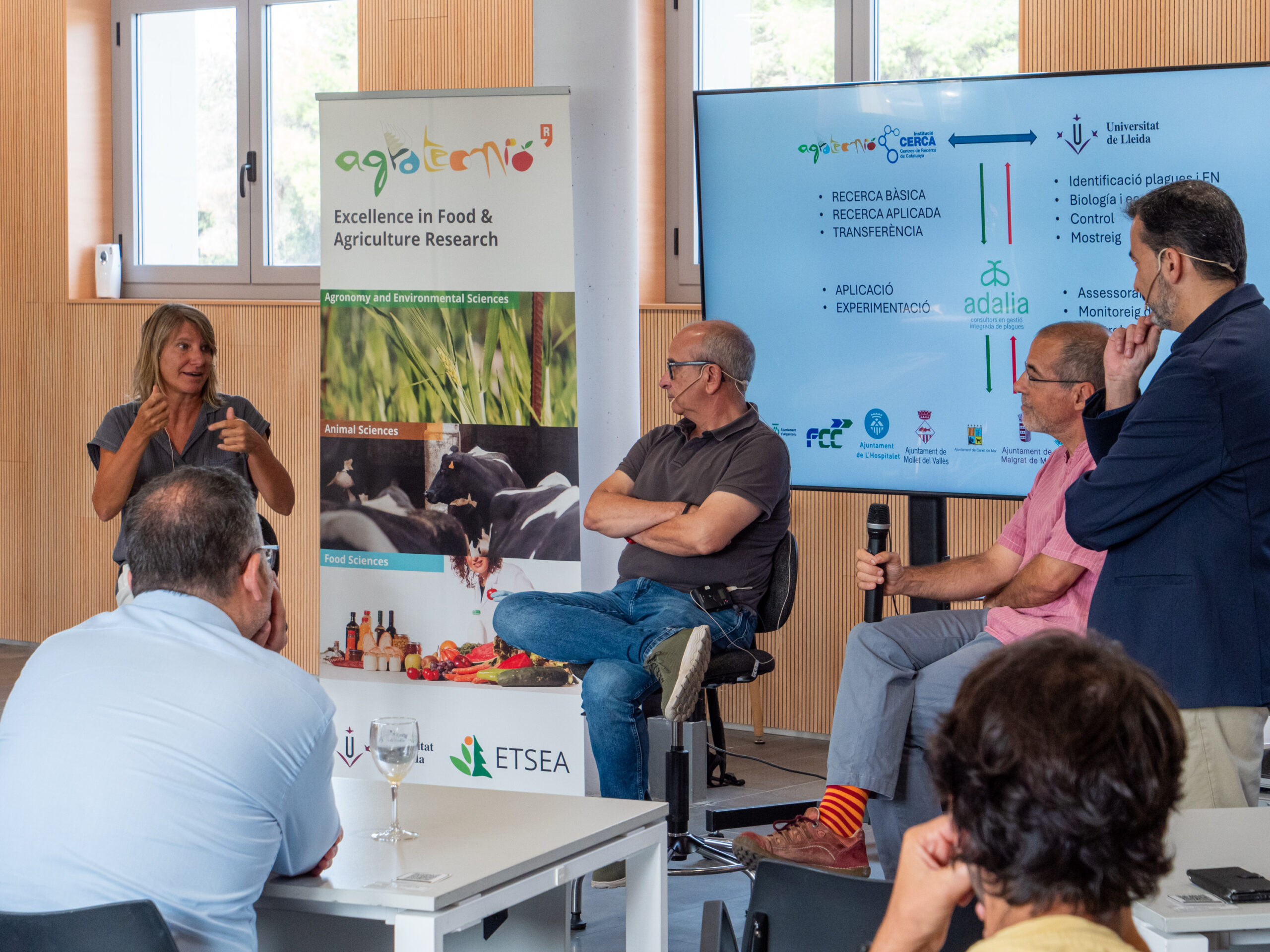 The fourth session of Breakfast4inno dealt with the biological control of pests in urban green spaces.
The fourth session of Breakfast4inno dealt with the biological control of pests in urban green spaces.
Lleida, 12 September 2024. How to control urban green spaces in a totally biological way?, this was the focus of the fifth edition of the Agrotecnio and Agrobiotech Lleida Park Breakfast4inno, which was held today in the Agroliving Lab building of the technology park. The session has counted with the presentations of the researcher of the Agrotechnology group of Crop Protection and professor of the University of Lleida, Xavier Pons; of the agricultural engineer of the company Adalia Gestión, specialized in integrated pest management in parks and gardens; and of the responsible of the management of the urban parks of the city council of Malgrat de Mar, Carles Garcia.
The world population is moving more and more towards urban areas, causing a demand for urban space. Cities, often considered as unfriendly environments for wildlife, are incorporating green spaces. As these spaces are used by the general population, who are considered vulnerable, it is becoming increasingly urgent that they are pesticide-free areas and that their management and maintenance is approached from a holistic control perspective, reinforcing preventive measures, assessing risks, incorporating curative measures and looking to use as few plant protection products or pesticides as possible.
Xavier Pons, lecturer at the UdL, stressed the beneficial role of arthropods in general and insects in particular, pointing out that ‘they play an essential role in ecosystems as they are biological control agents, because many of them feed on other insects and prevent pests’. In fact, he explained that they are also pollinators and help to decompose organic matter.
The engineer Mónica Bedós detailed her experience as an advisor to town councils that manage green spaces. ‘There is an increasing awareness that these spaces must be free of phytosanitary products. In fact, there is a 2012 decree that stipulates this. Town councils need experts in managing these spaces, and companies like us, fortunately we have research centres such as Agrotecnio and the University of Lleida, already provide us with information that is vital to us when managing these spaces’.
An example of a town council that manages its public spaces in a totally organic way is the one of Malgrat de Mar. In fact, it was one of the first to do it, more than 15 years ago. As explained Carles Garcia ‘we don’t use any kind of phytosanitary products’. Garcia denied that this biological control is more expensive than chemical control ‘on the contrary, we have greatly reduced the cost of maintaining these areas’.
The three speakers stressed the need to strengthen communication with the public to make them aware of the importance of reducing the use of phytosanitary products and to educate them about the beneficial role of insects, ‘starting in schools, if children lose their fear of insects, we will have already taken a big step’, they said.
